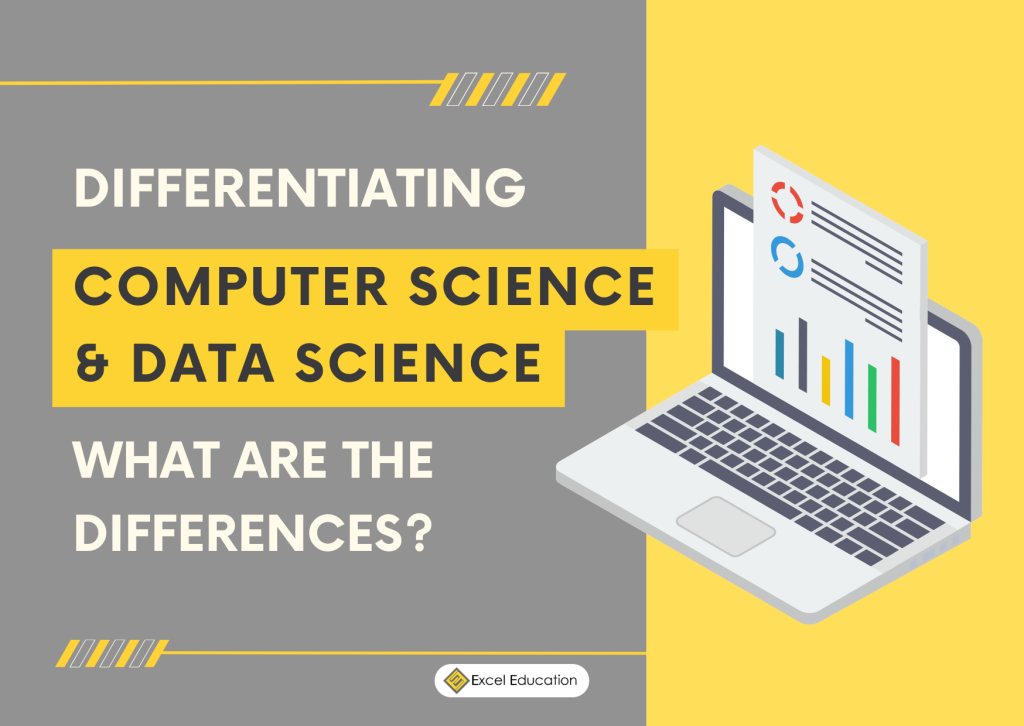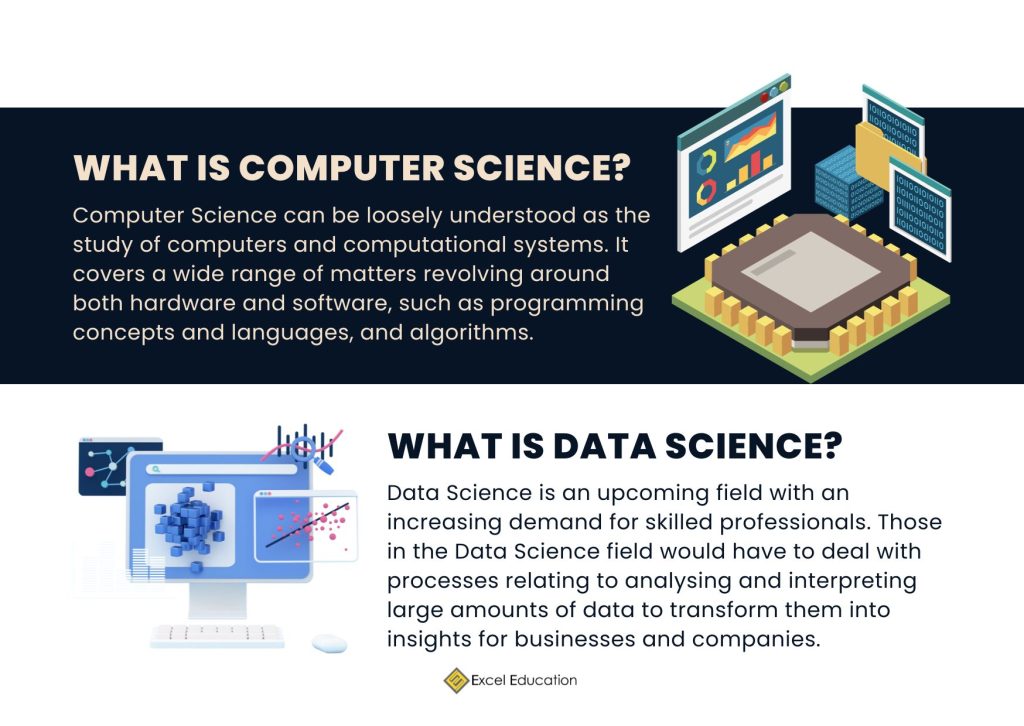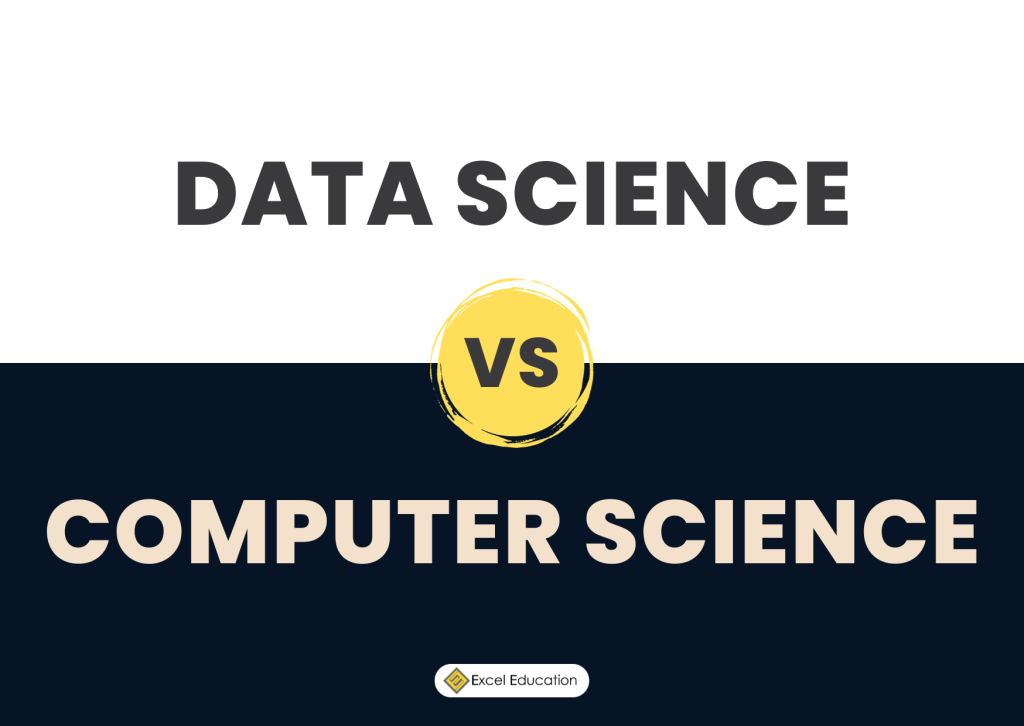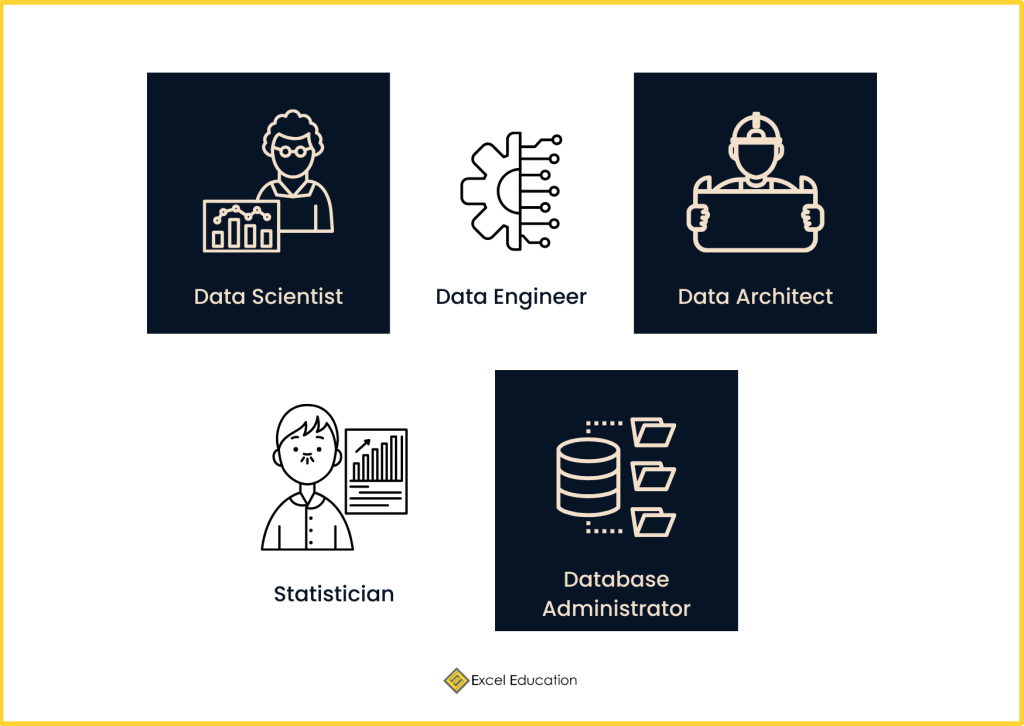
What is Computer Science & Data Science?

What is Computer Science?
If you think about it, technology has greatly diffused itself into society. You see it everywhere, from applications to softwares, smartphones, and even computers! For this reason, you’ll recognise Computer Science to be quite a valued field.
Computer Science can be loosely understood as the study of computers and computational systems. It covers a wide range of matters revolving around both hardware, namely the study centering computer design, and software, such as programming concepts and languages, algorithms, and digital systems. Simply put, Computer Science is a broad field providing you a vast array of potential career options after computing a degree in the field.
Additionally, the foundation of the Computer Science field is built off of many disciplines which are Science, Technology, Engineering, Mathematics, Engineering, Statistics, and even Circuit Design.
What is Data Science?
On the other hand, Data Science is an upcoming field with an increasing demand for skilled professionals. Those in the Data Science field would have to deal with processes relating to collecting, analysing, and interpreting large amounts of data either to transform them into insights to predict customer behaviour and trends in businesses and companies, or to solve problems and make informed decisions.
It is a field integrated with Mathematics, Statistics, Machine Learning, and Computer Science. Data Science is also known to be a field that is more narrowed or specialised as compared to Computer Science, which is part of the reason why it is quite common to see Computer Science degrees with a Data Science major or pathways from a Computer Science Undergraduate Degree to a Master in Data Science.
Data Science vs Computer Science

Below are some differences between Data Science and Computer Science to further understand these two fields:
Data Science | Description | Computer Science |
A specialised field, partly derived from Computer Science revolving around data to gain insights and make predictions based on them. | Scope | A broader field revolving around a wide range of matters revolving around computer and computing systems, their hardware and software. |
The demand for careers related to Data Science is rapidly growing, especially for skilled professional data scientists. | Demand | Careers related to Computer Science are still in demand and competitive. A leadership role would call for a Master Degree. |
Professionals in Data Science base their expertise more towards statistics and data with mathematical calculations. | Expertise | Professionals in Computer Science are able to orient themselves to multiple specialisations that would usually involve programming skills, coding, and algorithms. |
Specialised professional career in a wide range of industries, such as social media, marketing, finance, and investment. | Career Paths | Varying careers in a wide range of industries such as game development, academia, and technical support. |
Those with a career relating to Data Science often would involve data. The data is then processed and analysed, to further develop insights and growth of the corporation they are in. | Job Duties | A career relating to Computer Science would have varying job duties depending on what they decide to specialise in. Though, it would typically involve technological mechanics. |
Computer Science Careers

- Software Engineer
Essentially, a Software Engineer is someone who constructs software for applications and computer systems. It is the branch of Computer Science dealing with design, development, testing, and maintenance of software applications.
- Web Developer
As the name writes, Web Developers develop or build websites through the usage of coding and programming. They utilise many different programming languages in order to make their websites well optimised and secure.
- IT Analyst
An IT Analyst would work closely with computer systems to examine and diagnose them, as a way of optimising user experience with the programs. Their role consists of consulting their clients on improvements that can be made to enhance their systems.
- Computer Programmer
A programmer deals with debugging, troubleshooting, and eliminating errors in the codes of their programs and softwares. They collaborate with software engineers and developers to ensure the coding for their programs run smoothly.
- UI/UX Designer
UI stands for User Interface and UX stands for User Experience. UI/UX Designers are responsible for the design of interface elements, such as menus, tabs, or widgets in softwares. Additionally, these elements need to be user-friendly to make users have a seamless and interactive web experience.
Data Scientist Jobs

- Data Scientist
Generally, Data Scientists are analytical data experts who extract and interpret data to resolve issues or complex problems. They could be in charge of uncovering insights through trends and patterns or develop algorithms for the purpose of forecasting outcomes. A career as a data scientist is said to be satisfying and intellectually challenging in a good way.
- Data Engineer
Considering the monumental amount and high volumes of raw data that could be generated in organisations, Data Engineers take on the role to convert these data into data that is more digestible and accessible for Data Scientists to peruse.
- Data Architect
Data Architects are much like architects placed in the context of designing an organisation’s data management framework and infrastructure. This role is filled to ensure efficacy of an organisation’s data management systems in compliance with business requirements and data security regulations.
- Statistician
Statisticians would work with data through analysis and interpretation as a way of guiding organisations and businesses with logistical situations. They utilise statistical methods and models to establish solutions and proceed to communicate with their employers.
- Database Administrator
A database is basically a collection of data stored in a computer system. Database administrators build and manage databases with suitable requirements needed by their respective organisations. They would typically manage security, troubleshooting, storage, and database updates.
General Requirement to study Computer Science and Data Science in Australia
Following are the general requirements for studying Computer Science and Data Science in Australia:
Academic Entry
Academic entry | Minimum Score |
STPM | Aggregate score of 6 |
Matriculation | CGPA of 2.75 |
A-Levels | Aggregate score of 6 |
UEC | CGPA of 2.20 |
IB Diploma | 26 |
Australian Matriculation (ATAR) | 70 |
Canadian Pre-University (CPU) | 60 |
Note: Universities may have different requirements. To learn more, get in touch with us!
English Language Entry Requirements
Entry Level | Minimum Score |
IELTS | 6.0 |
TOEFL | 79 |
Pearson Test of English (PTE) | 58 |
Note: Universities may have different English Language requirements. To learn more, get in touch with us!
Australia Computer and Data Science University
1. University of New South Wales (UNSW)

University of New South Wales (UNSW) is a world-leading institution regarded as a global leader in teaching and research, aiming to mould their graduates into forward thinking, environmentally conscious, and socially mindful individuals who would pilot positive impacts to society and the world.
Studying Computer Science or Data Science at UNSW would offer students with proper technical skills and knowledge to make them qualified graduates when they step into their respective professional industries. These courses would also include hands-on initiatives through programs like ChallENG and Work Integrated Learning.
Programme Offered | Duration | Intake | Indicative Fees (2024) |
Bachelor of Science (Computer Science) | 3 Years | February, May, September | International Students: AU$ 172,500 |
Bachelor of Advanced Computer Science (Honours) | 4 Years | February, May, September | International Students: AU$ 237,500 |
Bachelor of Data Science and Decisions | 3 Years | February, May, September | International Students: AU$ 168,500 |
Contact us right now for a free consultation if you’d like more details about the costs, the format of the programme, and the entry requirements!
2. Royal Melbourne Institute of Technology (RMIT)

Royal Melbourne Institute of Technology (RMIT), an institution in Melbourne, a city known for being one of the best student cities, empowers their students through practice experience exposure, local and international opportunities, enriching programmes to equip you with skills and knowledge to excel in your career.
Choosing to study in their Computer Science or Data Science programmes would deem significant as they are known to be one of the Australian Technology Network (ATN) member universities. Students are also offered an intensive programming boot camp to boost their skills in real world problem solving.
Programme Offered | Duration | Intake | Indicative Fees (2024) |
Bachelor of Computer Science | 3 Years | February, July | International Students: AU$ 115,200 |
Bachelor of Data Science | 3 Years | February, July | International Students: AU$ 115,200 |
Contact us right now for a free consultation if you’d like more details about the costs, the format of the programme, and the entry requirements!
3. Queensland University of Technology (QUT)

Queensland University of Technology (QUT) stands as an ambitious and collaborative institution in Australia offering a wide range of programmes for their graduates. QUT is furnished with revolutionary learning spaces and technology to ensure their students gain comprehensive education and training.
QUT’s Bachelor of Information Technology (Computer Science) offers their students with multiple specialisation options such as mobile computing, artificial intelligence, robotics, and large-scale information management. Their Bachelor of Data Science programme on the other hand, is thoughtfully crafted to cater to the fast-evolving world of Data Science.
Programme Offered | Duration | Intake | Indicative Fees (2024) |
Bachelor of Information Technology (Computer Science) | 3 Years | February, July | International Students: AU$ 116,700 |
Bachelor of Data Science | 3 Years | February, July | International Students: AU$ 110,400 |
Contact us right now for a free consultation if you’d like more details about the costs, the format of the programme, and the entry requirements!
4. Western Sydney University (WSU)

Western Sydney University (WSU) is a well-known institution with multiple campuses located in the Greater Western region of Sydney in Australia. WSU values ideals such as Academic Excellence, Integrity, and Knowledge Pursuit while committing to global networking and genuine impact to all layers of communities.
Under WSU’s Information Technology, AI, and Data Sciences study area, programmes are designed to encourage their students to be at the forefront of the tech space industry. Unique learning environments are promised for students to collaborate and gain achievements such as winning Best Robot Design in 2016, and competing in the World Solar Car Challenge.
Programme Offered | Duration | Intake | Indicative Fees (2024) |
Bachelor of Computer Science | 3 Years | March, July | International Students: AU$ 102,120 |
Bachelor of Data Science | 3 Years | March, July | International Students: AU$ 107,160 |
Contact us right now for a free consultation if you’d like more details about the costs, the format of the programme, and the entry requirements!
5. Griffith University

Griffith University is a recognised institution for international students opting to study in Australia due to its goal of assisting them to succeed by offering high-quality instruction and guidance. They are also driven to address significant social and environmental issues as a way of fulfilling their responsibilities.
Griffith University’s Computer Science programmes are designed to educate their students with fundamental principles and skills needed in the field, along with work integrated learning through industrial placements. It is similar with their Data Science programmes, however, in the case of their Data Science programmes, students are offered Double Degrees with either Bachelor of Business, Bachelor of Environmental Science, Bachelor of Science, or Bachelor of Engineering.
For further information on pursuing a Bachelor Degree in Data Science at Griffith University, don’t hesitate to contact us!
Programme Offered | Duration | Intake | Indicative Fees (2024) |
Bachelor of Computer Science | 3 Years | March, July | International Students: AU$ 109,500 |
Bachelor of Advanced Computer Science (Honours) | 4 Years | March, July | International Students: AU$ 146,000 |
Bachelor of Business / Data Science | 4 Years | March, July, November | International Students: AU$ 146,000 |
Contact us right now for a free consultation if you’d like more details about the costs, the format of the programme, and the entry requirements!
For more information regarding the university, programmes offered, entry requirements and fees, contact Excel Education
Recommended Articles to Read
Contact us to find out more!
Student enquiries:
Call/ WhatsApp: +60162206607
Email: [email protected]
For more stories like this, join the Excel Education community on Facebook or follow us on Instagram
Need help with your university application? Connect with us here
About The Author

Hannah Hir
Hannah appreciates various art forms, especially Asian literature, film and music. Most of her favorite Malaysian kuihs are green-coloured.

